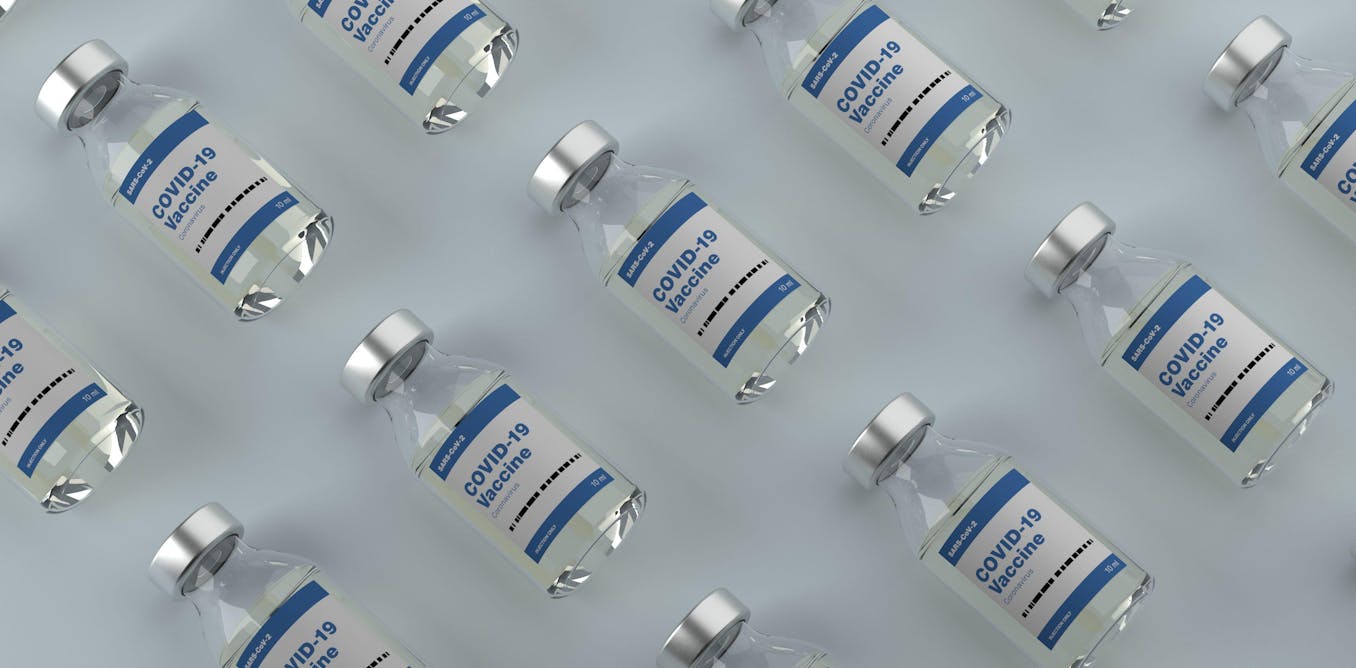The COVID vaccines work. Data from Israel and Scotland show that they protect humans and may also reduce the spread of the SARS-CoV-2 virus. If it all holds out, people will be protected from serious diseases, the amount of virus will gradually decrease and we can really plan to get a way out of the pandemic.
Evidence is increasing that once you are infected, the chances are good that you will be protected from further infections, or at least have less serious illnesses. This makes sense because it’s why you developed your immune system in the first place.
Over millions of years, the immune system has been shaped by the laws of natural selection. Once infected or vaccinated, memory B and T cells remain. If you become infected again, they will wake up and eliminate the infection in such a way that you will not even feel sick. You can see how it made evolutionary sense. Feeling sick means you are less likely to reproduce, so there would have been a survival benefit to immunity.
However, an important question in immunology regarding infectious diseases and vaccines is: how long can protection last? There are various variables here, from the type of pathogen you are infecting, to how bad the initial disease is, to your general health and your age. All of this makes predicting what could happen to COVID challenging.
Measles or flu?
It may be helpful to compare the current information on COVID-19 with two diseases that we know a lot about and for which we have effective vaccines: measles and influenza. In what future will COVID look like?
Measles is a much more stable virus than SARS-CoV-2 – it does not change much. It also usually leads to a strong immune response, and so immunity tends to last a long time, either due to infection or vaccines. One study showed that antibodies against measles last a lifetime. Because it is such a stable virus, the vaccine you had years ago, or the response to the natural infection, can protect you when it becomes infected again.
Flu, however, is different. The flu virus can change with ease. This means that we still have to vaccinate against it, as vaccines against a previous variant may not protect against a new variant. The stability of a virus is therefore an important determining factor or protection continues.
COVID-19 probably sits somewhere between measles and influenza. It is not as stable as measles and is not as variable as flu. We can expect immunity to COVID-19 to last, but probably not as long as measles. And we’ll probably have to vaccinate against variants that pop up, just like for flu.
One thing we are going through is the repetitive nature of the surface of SARS-CoV-2. The vein protein covers the surface of the coronavirus in a fairly uniform manner. Antibodies to smallpox, which also have a very repetitive surface, last a lifetime. In this situation, macrophages (a type of white blood cell that swallows and digests pathogens) may be better able to eat up the antibody-covered virus.
If the ear protein mutates and antibodies can not bind as well, it’s worth giving a boost shot against the new ear protein – that’s what’s planned.

Wikimedia Commons, CC BY
And if antibodies do not work so well against variants, T cells can. This can mean that we do not need boosters at all and that we can have long-term protection against several variants. And even if the immune response is lower against variants, we will probably still be protected from serious diseases.
One important aspect of natural infection is how strong the initial immune response is. The cold often causes only a mild reaction in the upper airways. This is because a virus that confines itself to your nose is not much of a threat. This means that the immune response does not really get going at all. It is insufficient to bring up memory B and T cells.
When flu causes a great fight, which the immune troops never forget, the cold is merely a skirmish that is soon forgotten. A gentle dose of COVID may be similar. If you have had a more pronounced illness, it may come in handy and offer you resistance to reinfection. But if you have only had a mild illness, or if you have remained symptom-free, you run the risk of re-infection.
Where vaccines come into their own, it is their power. They usually give a much stronger immune response than natural infection. This is because natural immune responses do not have the fraud of the pathogen, many of which have extensive ways of eliminating the immune response. This is again due to evolution.
Viruses that contain proteins that can limit immunity are likely to survive. This can be especially important with SARS-CoV-2, which has different ways of limiting immunity. Since the vaccines form one part of the virus (such as the protein of the vein), or a completely inactivated virus, it does not restrict immunity, and thus a robust immune response takes place. For example, the Moderna vaccine has been shown to elicit a persistent antibody response, where the natural infection is more variable.
We are now confident that infection with SARS-CoV-2 is likely to provide some protection against reinfection. However, as we see variants, it is wise to prepare for shots with new vaccines for those who are defenseless. We will have a better idea in the coming months if this is necessary.
If this is the case, COVID will be more like flu, which needs boosters. But if it is not so, it will be more like measles, where those who refuse vaccination are the only threat.
